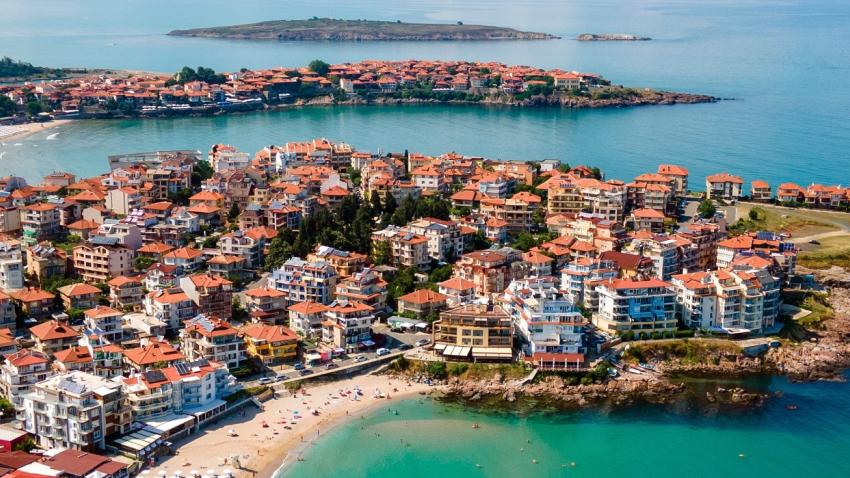Bulgaria offers various work permit categories, including: Highly Skilled Workers: For professionals with specialized qualifications. Seasonal Workers: For individuals employed in seasonal industries like tourism or agriculture. Self-Employed Individuals: For those intending to establish and run their own business in Bulgaria. Each category has specific eligibility criteria and requirements.
Bulgaria
- Home
- Bulgaria
Need Work Permit
Bulgaria
Call Us
Have one of our qualified advisors contact you today.
Download Brochure
Amet minim mollit non deserunt est sit aliqua dolor do amet sint.
About Bulgaria
Bulgaria, located in Southeastern Europe, shares its borders with Romania, Serbia, North Macedonia, Greece, and Turkey. With a rich cultural and historical heritage influenced by the Roman and Ottoman Empires, as well as neighboring civilizations, the country offers a unique blend of traditions. The population is primarily Bulgarian, with minority communities including Turkish, Roma, and Russian groups.
Bulgaria boasts a strong education system with both public and private institutions, a high literacy rate, and internationally recognized universities. Its publicly funded healthcare system ensures universal coverage and access to quality medical services. The country’s economy is diverse, driven by key industries such as information technology, manufacturing, and tourism.
As a member of the European Union and NATO, Bulgaria plays an active role in regional and global affairs. Known for its breathtaking landscapes, historic landmarks, and vibrant cultural scene, Bulgaria is an attractive destination for professionals, investors, and tourists alike.

Explore the Opportunities in Bulgaria!
Located in Southeastern Europe, Bulgaria offers a perfect blend of culture, career growth, and scenic beauty. Let our expert guide help you navigate the journey of working in this dynamic country.
Work permit category D positions
Foreign nationals in Bulgaria can obtain work permits across different categories, including highly skilled professionals, seasonal workers, and self-employed individuals. Each permit type comes with specific eligibility criteria, requirements, and benefits tailored to different employment needs.
Wage rate
The average monthly salary in Bulgaria varies by industry and job position. Entry-level roles typically start at around €400, while highly skilled professionals can earn up to €1,500. With a relatively low cost of living compared to other European countries, salaries in Bulgaria are generally aligned with affordable living expenses.
Eligibility Criteria
Work permit eligibility in Bulgaria depends on the permit type. Typically, applicants need a valid job offer from a Bulgarian employer, proof of qualifications and experience, and criminal and medical clearance. In some cases, employers must demonstrate that no suitable candidate is available locally or within the EU.
Benfits of working in Bulgaria
- Location: Bulgaria is a beautiful country in Southeastern Europe.
- Scenic & Cultural Appeal: Known for its natural landscapes, rich cultural heritage, and friendly people.
- Work-Life Balance: Standard working week: 40 hours Minimum 20 paid vacation days per year
- Healthcare: Publicly funded system providing universal coverage for all citizens.
- EU Membership: As a member of the European Union, Bulgaria offers easy access to other European countries.
- Economy: Diverse industries contribute to its GDP, including: Information Technology Manufacturing Tourism

Required documents
- Copy of the valid passport.
- Passport size white background photograph
- Updated biodata
- Experience letter
Frequently asked Questions
Faucibus non sed faucibus mauris ultricies. Cras varius proin amet vehicula magna. Ultricies gravida vel volutpat sed. Platea sed fames at egestas amet feugiat laoreet potenti integer. Viverra at maecenas convallis condimentum egestas nunc sagittis eu. Semper faucibus facilisis vitae sollicitudin.
-
What are the different categories of work permits available in Bulgaria?
-
What is the average salary in Bulgaria?
Salaries in Bulgaria vary based on industry and position. On average: Entry-Level Positions: Approximately €700 per month. Highly Skilled Positions: Up to €1,500 or more per month. The cost of living in Bulgaria is relatively low compared to other European countries, which aligns with the salary levels.
-
What are the standard working hours and overtime regulations in Bulgaria?
The standard working week in Bulgaria consists of 40 hours, typically spread over five days. Overtime is regulated by law, with employees entitled to additional compensation for extra hours worked. The maximum allowable overtime is capped, and specific regulations govern the circumstances under which overtime can be required.
-
What are the eligibility criteria for obtaining a work permit in Bulgaria?
Eligibility requirements vary depending on the type of work permit but generally include: A valid job offer from a Bulgarian employer. Proof of qualifications and relevant experience. Clean criminal record. Medical certificate confirming good health. Employers may also need to demonstrate that no suitable candidate is available locally or within the European Union.
-
What are the benefits of working in Bulgaria?
Working in Bulgaria offers several advantages: Work-Life Balance: A standard 40-hour workweek with a minimum of 20 paid vacation days per year. Healthcare: A publicly funded system providing universal coverage for all citizens. EU Membership: As a member of the European Union, Bulgaria provides easy access to other European countries. Diverse Economy: Opportunities in various sectors, including information technology, manufacturing, and tourism.
-
How does the cost of living in Bulgaria compare to other European countries?
Bulgaria boasts a relatively low cost of living compared to many other European nations. This affordability makes it an attractive destination for expatriates and foreign workers.
-
What is the process for obtaining a work permit in Bulgaria?
The process generally involves: Employer Application: The Bulgarian employer applies for an approval for the issuance of a single permit at the Employment Agency’s relevant local Directorate "Employment Office". Visa Application: Once approved, the applicant must apply for a Type D visa. Residence Permit: Upon arrival in Bulgaria, the individual must obtain a residence permit.
EXPAND YOUR WORLD!
- Building A4, Office 112, Dubai Digital Park, Dubai, UAE
- Hello@oceanmigration.com
- +971 4 546 9397





